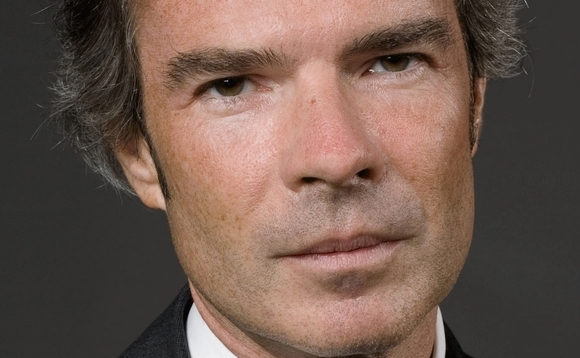
LPs still "incredibly selective", says Palico's Antoine Dréan

unquote” catches up with Antoine Dréan, chairman of placement agent Triago and founder and CEO of online private equity platform Palico, to hear his views on the current fundraising environment and the rise of LP/GP matchmaking services
Greg Gille: What is your view on the current fundraising market?
Antoine Dréan: Last year, Triago saw around 2,000 teams looking for an overall $800bn in the market – of that, $365bn ended up being raised worldwide, so a lot of fundraising efforts proved fruitless. LPs are still incredibly selective, partly because they still have a few scars from the boom years but also because they don't necessarily have the resources to look at everything in the market.
LP choices are definitely much more focused, especially since "me-too" funds are still quite prevalent in the buyout space. There has been some improvement on that front compared with the past few years, but it will take some time to be fully addressed, which of course creates a wealth of opportunities on the secondaries market.
All in all, the market is extremely fragmented at the moment, which was a crucial driver behind the launch of the Palico platform. The private equity industry of 20 years ago was an extremely simple world: broadly speaking, you had a small number of LPs and a small number of GPs, almost all based in the US, and they all more or less knew each other. Today, LPs are everywhere, from Kazakhstan to Peru, and are much more diversified in terms of profiles. The same goes for GPs, with a very broad array of strategies. This is why you see us, as well as our competitors, coming up with solutions to address this.
GG: Isn't that the role of placement agents, though?
AD: I don't think the "rolodex" aspect is the bulk of the value added by placement agents these days. A good placement agent will always place more focus on the role of adviser as opposed to simple matchmaker, which again might have sufficed 20 years ago, when the market was much less transparent. And I don't think the two – placement agents on the one hand and information sharing platforms on the other – are mutually exclusive, which is why we also see placement agents using Palico.
GG: You also mentioned that investors are much more focused. Looking at activity on the platform in detail, do you see trends emerging in terms of what LPs are currently looking for?
AD: It really depends since they all have very different profiles and strategies. That said, appetite for co-investments and even direct investments is certainly a growing trend, even if it hasn't resulted in a significant shift yet. The same goes for secondaries: it doesn't show that much in the stats yet, but it is increasingly becoming an important part of LPs' strategies. Finally, the interest in emerging markets also shows pretty clearly, especially since private equity is becoming much more attractive for investors fleeing the volatility of the public markets in these geographies.
GG: What were some of the main challenges that came up when building the Palico platform?
AD: Above everything else, I think that operating in that space without being regulated as a broker-dealer is a significant risk, since you are essentially facilitating transactions between vendors and buyers. This means that you have to spend more time performing checks on your users to make sure that the accounts are legitimate and both LPs and GPs can operate safely on the platform. It would be very challenging to target the more established players in the market without being able to offer them this level of security though, so the effort is worth it.
Another challenge is defining exactly what the platform is for: matchmaking, or actual transacting? I don't think a fund can be raised online, or that a secondaries deal can be transacted on an online platform from start to finish. Private equity is still too much of a people industry, where the human factor is paramount. There is a chance that we could see complete automation happen in the long term for secondaries, but crowdfunding for private equity funds remains an illusion.
Latest News
Stonehage Fleming raises USD 130m for largest fund to date, eyes 2024 programme
Sponsor acquired the public software group in July 2017 via the same-year vintage Partners Group Global Value 2017
Stonehage Fleming raises USD 130m for largest fund to date, eyes 2024 programme
Czech Republic-headquartered family office is targeting DACH and CEE region deals
Stonehage Fleming raises USD 130m for largest fund to date, eyes 2024 programme
Ex-Rocket Internet leader Bettina Curtze joins Swiss VC firm as partner and CFO
Stonehage Fleming raises USD 130m for largest fund to date, eyes 2024 programme
Estonia-registered VC could bolster LP base with fresh capital from funds-of-funds or pension funds








